|
So, you wrote a book.
The first thing every friend, family member, and fan will assume? You stole everything from real life because you're an unoriginal fraud. My response to that, after years of defending my honor, is... FINE. I'm calling their assumption and saying yes. I did steal some things. Why? Because I could. Because real life inspires me. Because nothing in this world is truly ours. You might be surprised at the things I stole and the things I didn't. Allow me to enlighten you. NAMES:
CHARACTERS:
SCENERY:
So, there you have it. Feast your eyes on my thievery. Now it's your turn to tell me what YOU'VE stolen!
3 Comments
I've gotten that question a lot, so I figured I should formally answer it. Here I was, thinking I'd found some super clever name to define my trilogy. Little did I remember the completely unintended connotation of the word. First, let's start with the dictionary definition of the word "whitewash." noun
Without being too spoiler-y, I'll just say the definition I'm intending falls into one of those three. (Okay, fine, my book is about woodwork. Now you know.) Next, I'd like to address an alternate meaning of whitewash, the definition people of today's political climate might conjure first. Urban dictionary says as follows: "A derogatory term used to describe a minority who has assimilated with western society. The 'White washed' person does not necessarily abandon his/her own culture but rather embrace others beside his/her own. Some people take it as a compliment while others take it as an insult." Merriam-Webster has more to say: "More and more people are using 'whitewashing' to describe the practice of casting white actors as non-white characters. This new sense of whitewashing refers to casting white actors as characters who are non-white or of indeterminate race, as in the casting of Fiennes as Jackson. It can also refer to preferring white actors, directors, cinematographers, and so on, over equally qualified people of color, as in the Oscar nominations." After reading those definitions, I can understand why readers are a bit wary when they see the title of my trilogy. Let me wholeheartedly reassure you: my books are in no way promoting Urban dictionary's or Merriam-Webster's definitions. When I chose the title Whitewashed, I was thinking only of the technical, non-colloquial meaning of the word. Initially, this trilogy was meant to be called Anamnesis, but that title was already taken. I searched for another word that fit the overarching theme of the trilogy. Whitewashed was pretty spot on (again, according to the technical definition). When you reach Book II, The Integer, all becomes clear. And that's all I'll say on that!
So, there you have it. My trilogy is called Whitewashed because Ella is a carpenter on a quest for a lush lime tree which will give her all the properties of a magician. It's really all very straightforward. No reading between the lines there. Or should I say, reading between the limes...? Okay, I'm done. *Warning! This post is very spoiler-y. If you haven't read books 1 & 2 of my Whitewashed trilogy, you're gonna be supa confused, and you'll ruin the series for yourself, soooo... don't proceed. Stop reading. Now. K bye.* Have you ever wondered what would happen if you saw Star Wars in chronological order? Would the plot make sense, or is part of Lucas' genius that they must be watched 4-6, then 1-3? Like most millennials, I grew up watching the films in release order. I can remember seeing Phantom Menace and geeking out over the cherubic Anakin. "This kid's gonna grow up to be Darth Vader!" That foreknowledge is both a blessing and a curse. Because of it, I caught all the Easter eggs. And because of it, Anakin's downward spiral seemed contrived and disjointed. Lucas knew Anakin would turn, and that knowledge congested Anakin's character arc, painting him as an unlikeable creep before he'd killed any younglings. Lest this post turn into a rant about Anakin and his feelings on sand, I'll shift gears back to my trilogy. When I first came up with the plot for my series, I always intended to write the books in chronological order. It was my then-boyfriend, now-husband who suggested I tackle the first two books in reverse. "It would be really boring for the reader to know more than Ella does in Book #1," he said. "You should start the story after Ella's memory is wiped, that way the reader discovers the truth alongside her." Book #2 would really be the beginning, and Book #1 would be the aftermath. That idea intrigued me. Imagine how many Easter eggs I could pile into Book 1! Imagine the delight of writing *this* scene, knowing it won't make any sense until Book 2! It'd be my own private joke that readers could appreciate later. And so, when I started writing The Trace in Astronomy class freshman year of college (correct, I was definitely not paying attention), I began Ella's story post-memory wipe. The first sentence - which has since been rewritten - read, for many drafts, "The first thing that hit me was the smell." Even THAT was an Easter egg! Why did the smell of her own home strike her as unique? Because she hadn't smelled it in over a year! Quite a few years (and drafts) later, the full story is out there. Readers can walk through Ella's confusion in The Trace, then have all their lingering questions answered in The Integer when they learn about her past. "Ahh, she'd met all these cadets before! Ooooh, she didn't spontaneously become athletic. Eeeep, so THIS is why Chron acts like he knows her!" I love hearing my readers exclaim, shout, and gasp as Ella's story slides into place, but part of me always wondered (a very dangerous business, wondering is): What would happen if someone read the books chronologically? - Would the story make sense? - Would The Trace be boring because readers would know more than Ella does? - Can The Integer actually work as an introductory novel to a series? - Is it possible for my series to flow the way I want it to in reverse? Of course, the only way to have these questions answered was by asking someone who's read the books chronologically. But who would ever think to do that? No one, because readers are intelligent creatures. If I wanted to get my answers, I'd have to find readers who knew nothing of the plot, then hand them my books - and some instructions - and let them have at it. So that's what I did. I shared my idea on Instagram expecting to get a few bites. When readers came out of the woodwork to ask more about this "weird" reading experiment, I realized I should preface every Instagram post with vague intrigue and mystery if I want to get any attention. (Just kidding. Sort of.) In fact, so many readers were curious that I decided to expand my reading pool from one to three. Then, because that didn't feel very satisfying, I opened the experiment up to any reader. Three readers received the print books, while the rest were emailed eBooks. Configuring the reading outline for the print books was doable, albeit time-consuming. Figuring out how to control the eBook trajectory was a whole other monster. Here's why.
The last chapter of Book #1 works as the first chapter of #2 - BUT, the prologue of #2 comes before the last chapter of #1. Readers had to go from #2 prologue to #1 final chapter; then, #2 Part I, followed by ALL of #1, and then back to #2 with Part II. Confusing, right? Yes. Yes it is. I got very mixed-up while planning this and had to ask myself a dozen times whether I was sure I'd gotten my own dang timeline correctly. Anyway, by some miracle, my guinea pigs managed to follow along, though I did get lots of "Wait, so I do it THIS way, right?" messages. I sincerely applaud every eBook reader for having the patience to keep up! If someone asked me to jump from book to book on my Kindle, I'd be like, "Ehhhhhhhhhhhhhhhhhhhh. No thanks." Now, you probably want me to get to the point. How did it go? Were readers able to keep up with the plot? The answer to that was a shocking, resounding YES. The books work in reverse order! I'm as amazed as you are. To streamline the results in a readable way, I'll do a list of pros and cons. There was a general consensus to this, though a few readers felt differently. PROS:
CONS:
In conclusion, every reader at least enjoyed the series, and most would agree that #2, The Integer, is their preferred book. I'd have to agree. The Integer not only goes far more in-depth with the characters--it's also my second stab at a book, which means my writing is stronger. If I follow the same trajectory, Book #3 will be the best! Overall, I'm happy with how this turned out. My hypothesis was that readers would feel disconnected from #2, having not read #1 first, but no one complained of this. I also suspected #1 would drag, and while the beginning did for some readers, most appreciated knowing more than Ella. My Easter eggs in #1 were noticed, and the side characters (Ethan, the cadets, One) were viewed in entirely different lights. This being said, I stand by my decision to write the books in the order I did. Following Ella's emotional journey properly is crucial to understanding her character arcs, and the shock factor is entirely lost when the reader knows 1) Ella's memory was wiped; 2) Grifters aren't evil; 3) Sanders/Leader/Eugene Andrews is the real villain; 4) One is an individual Tacemus; 5) the reason behind the cadets' behaviors; and much more. While it's cool to know Ella's backstory before she does, that perspective does ruin what I wanted to do with this trilogy. To all my readers: thank you so much for sticking through this convoluted experiment. Your feedback was enormously helpful in scratching that curious itch. Now I can rest assured knowing that, somewhere out there, people actually know how my story works in a chronological order. It was a weird itch to have, but authors are allowed to be weird. (We are. Don't argue.) P.S. In case you thought I was lying about everyone commenting on Ethan, I present this reader feedback:
You heard it from them first. Read my books, because Ethan is amazing. Why do we write? Well, for the same reason that we read: we believe in stories. My story started cooking in my head long ago, but I never had the will to do anything about it—until someone believed in me. A pinch of belief mixed with an ounce of determination (and, most notably, eight million heinous drafts) can produce a book.
It all comes back to the gap in my bookshelf. A slit between my books judged me every day, grumbling, “Why haven’t you filled me yet?” My excuse typically had something to do with time. I never seemed to have enough of it. To any writer struggling to put words on paper, time does exist; you only have to grab it when it finds you. So, about that bookshelf gap…. It demanded that I fill it with the story I’d always wanted to read, the story no other book could quench. This story of mine revolved around a girl whose name shifted and bounced, whose personality wavered as I grew. Her authenticity, however, remained. I often took issue with the YA protagonists of my youth—too bland, too faultless, too accepting of the mantle thrust upon them, too hardcore, or too “Why me?” My own brand of perfect protagonist floated in the “Just hang out there until I say you can leave” part of my brain. This protagonist struggled to jump right into the “conquering hero” mold; she could be cringe-worthily cheesy and awkward; she had faults that she tried ignoring; she got scared when the time to be heroic came; and, she was human. By that I mean ordinary, flawed, and most of the time unsure whether or not any of her efforts would make an impact. This protagonist floated in and out of the ideas my brain conjured. One day, she found her story and stayed put. Take a covert operation of powerful humans, an army of even more powerful enemies, an ordinary girl who suddenly changes, a best friend who needs protecting, and you’ve got the stirrings of Ella’s story. It’ll twist, characters will make mistakes, truths will find the light, and bad guys will reveal their humanity. This story might make you groan, laugh, grimace, cry, roll your eyes, or throw something—like the book itself. Hey, paperback is durable; it can withstand a few hurls against the wall. Most importantly, though, The Trace will nudge something in you—be it good or bad—because it’s a story and that’s what stories do. The Trace is Ella Kepler’s tale—no doubt about that—but she’s only a fragment in a plot that expands the more she uncovers. She grows, she retrogrades, she falls, and she falls again—and the story around her continues, because the world will turn, even if we stop. My hope is that Ella’s world will turn with you. *This post was originally published at Evolved Publishing's website here* Book 2 had a title, and then it didn't. It had a title that I thought was pretty cool, but the more I researched the word, the more I realized that anamnesis is something far too deep and complex to be attributed to a single book. Anamnesis is a more encompassing word that, in my mind, is the crux of the whole trilogy. So Book 2 became title-less again.
I remember how long it took me to come up with a name for The Trace. I tried variations of different things for weeks until I finally settled on a title that I thought worked. The Integer came from a two-minute search. When I read the full definition, it clicked. ^^ Not really. Though that would be cool.
Ella Kepler was created in Astronomy class, hence the space reference here and throughout Whitewashed. Her name was stolen from my favorite childhood book, Ella Enchanted. (Let's not talk about the movie. No really, don't bring it up. I will get depressed.) The name "Ella" was a filler at first, because I had no idea what else to call her. The last name came from the fact that, when I started writing, we were discussing Kepler's laws of planetary motion. Which I still don't really understand, but I think Kepler is a cool name. As the story progressed, the name Ella started to fit her character, and I realized that she was officially Ella Jane Kepler. Once upon a time, I had an idea for The Trace's book cover. I penned a letter to [Facebook messaged] a girl I used to play with when I was a wee youngster, someone who grew into a very talented artist. (I'm talking about her, not me.) I asked her, "Hey, can you draw half of a normal face and half of a creepy, zombie-like monstrosity? K thanks." Years later, I met another talented artist via an interview for an article. I kept her on my talented friends back burner and eventually approached her with a request: Can you take this sketch and turn it into a book cover? K thanks. This is the result. This cover exceeds all my expectations. And trust me, they were pretty high. The odd thing is, I didn't technically decide what Ella looks like. My two artists did. That thrills me, especially because my brain is no good with visual effects, so I honestly found it hard to picture Ella as anything other than a blob with hair. I gave the sketch artist some photos to model after and let her use her own imagination. When the graphic artist added the coloring, I gave her my preferences, but ultimately she created the perfect hair, skin, and eye colors. Ella herself became a collaborative effort between three people. And now I finally know what Ella looks like! My readers can, too. If you want to picture Ella while reading, just jump to the front cover. Or come up with your own image. I won't be offended. My good friend who's read the book a few times is still convinced Ella has brown hair. She's half right, at least.
The back cover is also beautiful, but that's not quite finished yet. I'm excited to reveal it to you when it's done! What do you think will be on it? You have no idea how stressful this question is. It's a common question, obviously.
"What do you do?" "Oh, I'm a writer." "Oh, cool! Have you written a book?" "Yeah, I have!" "Awesome! What's it about?" ".........Uh, a girl...yeah, a girl. She, uh...yeah." You'd think I'd know how to answer this question. I've had five years of practice. Besides, I wrote the dang book! I can quote passages verbatim. But I couldn't tell ya what it's about. Initially when people asked what my book was about, I'd compare it to Hunger Games, X-Men, and the Percy Jackson books. HG for the female-heroine-must-fight-for-justice theme; X-Men for the whole academy of superhumans plot; and I honestly have no recollection for why I used Percy Jackson. But there you have it. If you like all of those stories, you might like mine. The first confusion is the genre confusion. The Trace fits trickily into a couple genres. I can tell you that it's YA, but once I say "sci-fi," people think aliens and space battles. If I say "light sci-fi," people think it's quasi-scientific. "Urban sci-fi" evokes lightsaber street-fighting; "fantasy" evokes dragons; "fiction" is too vague. So I skip the genre question when people ask me and go straight to the synopsis. I've had to write synopses for query letters, my website, and my book cover. Each time, I start fresh and try a new approach, and it always sounds like either the most boring or most epic book of all time. "Ella Kepler had weird things happen to her. Then she realized she was special and she did stuff." Or: "The world isn't as it seems, and Ella Kepler is about to have the truth thrust upon her, a truth that will define her as she's never been before." I don't even know what either of those two hooks are saying. And I wrote them. Writing a synopsis is harder than writing a book. True story. Thankfully, I have an editor who has worked his magic. We've come up with a first-person synopsis that I'm much more comfortable with. This is from Ella's POV, instead of from this omniscient narrator who sounds detached. Omniscient narrator doesn't know how to tell Ella's story – only she does. So, here is what my book is about. I'm letting you read it with no pressure, no expectations, and without me awkwardly fumbling for an explanation. Henceforth, when people ask what my book is about, I'm just gonna say, "Go to AdelaideThorne.com" and walk away. ('Cause that's not awkward at all.) For centuries, the Metahuman Training Academy has protected unaware civilians from the Grifters, creatures whose humanity is as deformed as their craggy faces. I spent eighteen years ignorant of either group and their endless war. Then, the Grifters found me. The MTA whisked me away to safety while the danger passed. Only it didn’t. The Grifters, too stupid to know or too cruel to care that I’d left, kidnapped my best friend instead. It won’t take them long to figure out their mistake, but I’m not going to give them the opportunity. Finding Kara means grueling training at the academy—a sequestered hub of classified operations, psychic powers, and fighting creatures that should only exist in nightmares. Grifters are stronger, but we’ve got the weapons, the technology, the brains. Who cares if the Grifters can’t feel pain? We can, and Grifters are the perfect outlet. The Trace is the first book in a young-adult trilogy following Ella Kepler, a nascent metahuman whose strength and speed is matched only by the enemies set against her. Lurking behind (in front of, more accurately) every great story is the problem of the pesky protagonist. It's an unavoidable conundrum, like 5:00 traffic and colds and popsicles that drip all over the side of your hand. Writers are given the impossible task of creating a protagonist who is well-liked (or, dare I say it, well-loved) by all readers. I say impossible, because it's literally IMPOSSIBLE. I have been struggling with this problem ever since I started writing Whitewashed. “Will readers like Ella? Will they think she's annoying? Whiny? Weak? Stupid? Useless? Boring?” and pretty much every other antonym to character virtue.
Is. Done. What does this mean? Do you want to know what this means? It means that, since spring of 2011, I have dreamed of this day. I have imagined what I would say when it finally came. IT HAS FINALLY COME.
I'll admit: This post is a belated one, which means that you, dear reader, do not get to receive the full fervor of my reaction. That is probably a good thing. But I will say that my immediate reaction was one of confusion. Surely...surely I'm not done. Well, good news: I wasn't. And I'm still (sort of) not. When I finished the edits I'd wanted to do for The Cost, I had to pull in some readers. Naturally. 3 people read that draft. They gave me their feedback, and I made the suggested changes. Now, one person is reading this third draft, and she's a first-timer--as in, this is the first time she's read any draft of TC. (She also happens to be my cashier at Publix. After building rapport and learning that I wrote a trilogy, she asked if she could read Whitewashed. Well, of course I shrugged her off. But after many Publix trips in which this request was repeated, I finally gave in. And guess what? Now, I not only have another fan, but a super cool new friend. Moral of the story: Talk to the people who ring up your groceries.) The strange thing is, this is only my third draft of TC, and...I sorta feel like it's THE draft. The story feels done. Now, I'm sure once my editor takes a look at it, more changes will occur. It's a pretty long book, at around 138,000 words, so I bet stuff needs to be taken out--I just can't see what. That's what editors are for. Anyway, I finally reached a point of satisfaction with TC. That meant it was time to comb through Trace and Integer for continuity's sake (boy, am I glad these books did NOT get published before I'd finished the third! Otherwise, I'd be retconning a crap ton). I've done that, which means I'm sitting on 3 semi-done books that are just floating in the awkward space of "Now what?" Now, I wait to hear back from 2 agents. If those are no's, I reach out to that editor. She edits, I fix, and then I pursue self-publishing. So I'm not really done, not at all, because self-publishing requires a lot of work. On an exciting note, I've hired someone to work on a book cover for Trace! I shall keep you abreast, reader. So, I'm bewildered and amazed that I've finished these books. My heart is sad, and I honestly get excited when I comb through the books and find a random typo, because it means I still get to write in this universe. I've actually started a new book, an idea that was inconveniently cooking while I was trying to settle the conclusion of Ella's life. This book is third-person perspective, and also switches between a male and female perspective. It's totally new for me, and it's totally exciting, though part of me feels that I'm cheating on Ella. With this book, I'm exploring a different writing style, and I'm also venturing into the world of adult books. I would say this book is definitely not for young adults. It has mature themes and deals with controversial issues that I'm attempting to expound upon. I'll be posting a lot about this book in the future as I leave the Whitewashed world and enter the [insert title] world. Right now, I'm just calling it "Post Apoc." Here's a sneak peak of the first paragraph of this very, very rough draft! "The end of the world turned Ty into a cat lady. She figured it was better than being a rat lady, or one of those old saps who prune their wondrously fake garden all so some squirrel or bird can scuttle into their yard with a lingering hope that organic matter still remains. Thousands of years of existence hasn’t made Earth’s rodents any smarter. Ty didn’t know the last time she’d seen a bird." But enough of this stupid new book--I just want to talk about Whitewashed. Wahhhh. I WILL NEVER FINISH THESE. I will intentionally not make the edits that I need to, and the books will forever remain unfinished, and no one can stop me. Ha. Actually, who am I kidding? How many times have I said that I was finished with Trace or Integer? I will tell you: A LOT OF TIMES. Here I am, pining over the end, when I'm most likely at the beginning. You're not done with me yet, Whitewashed. You will never be done... *smiles maniacally* Don't worry, I'll keep you posted. |
Whitewashed Book ICategories
All
|
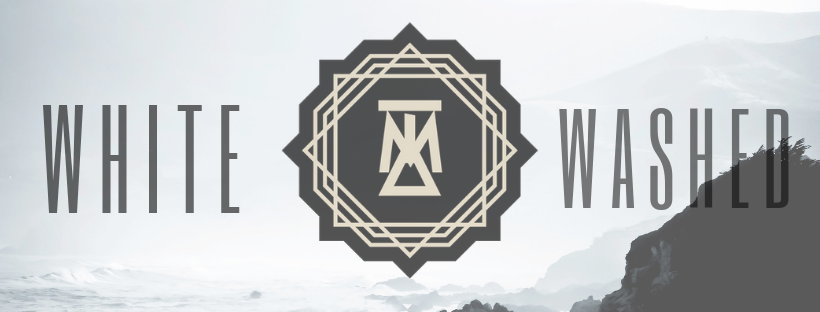

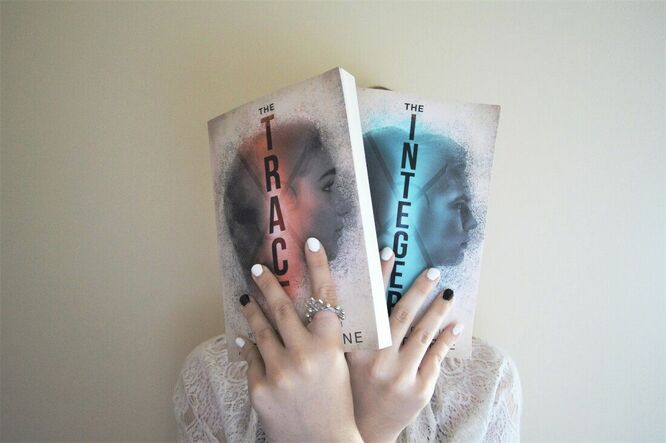
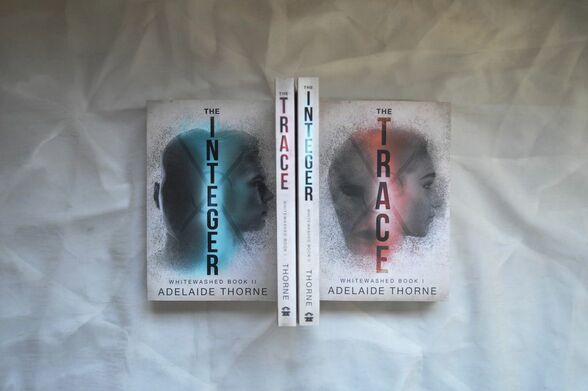

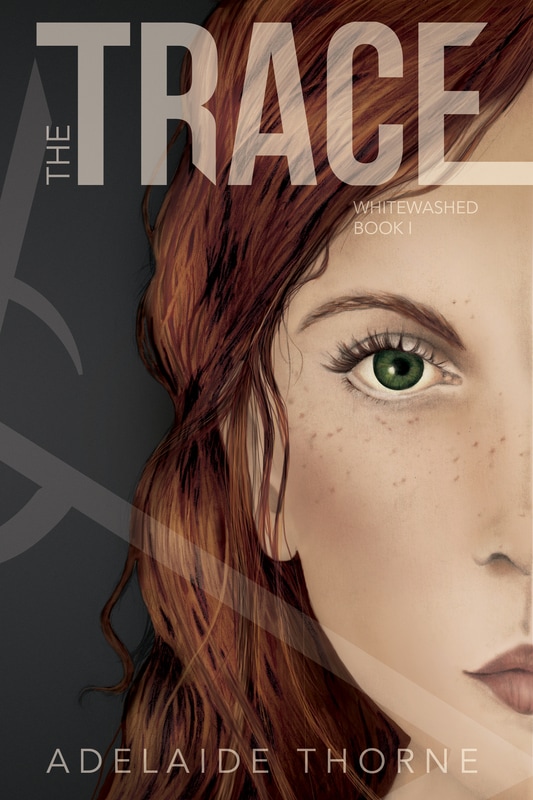
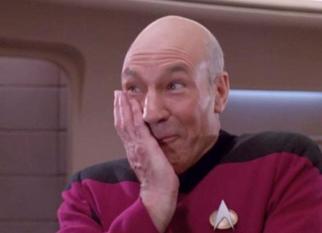
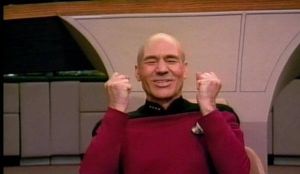
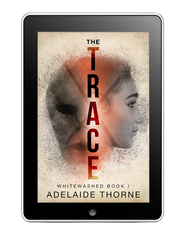
 RSS Feed
RSS Feed